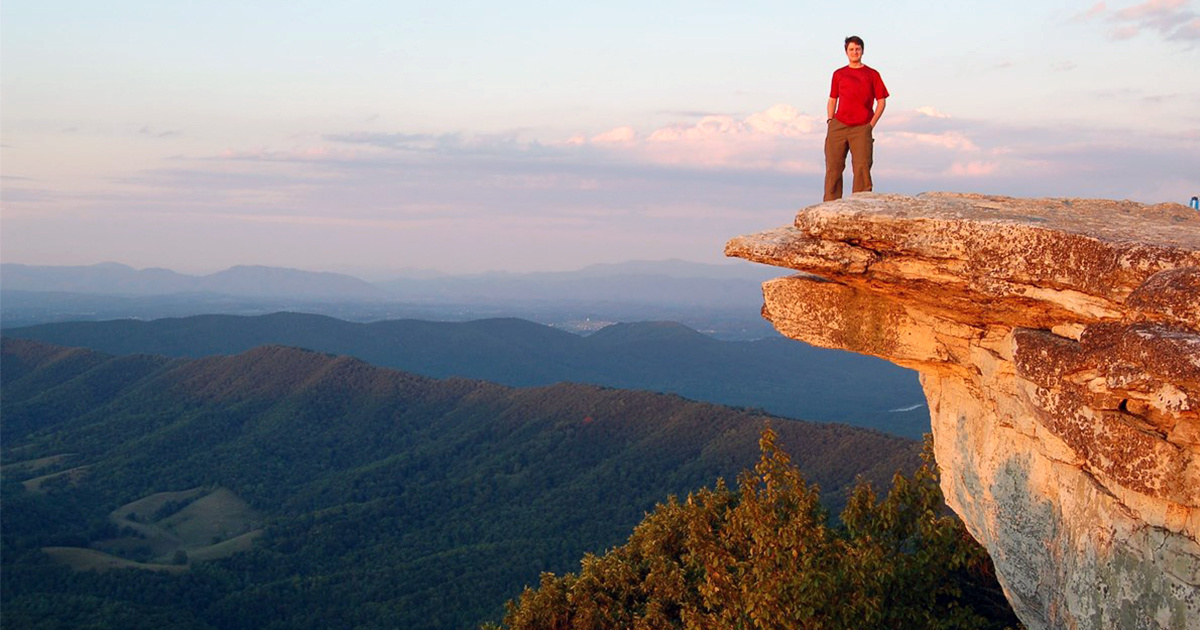
Court Tosses Controversial Pipeline Permits, Rules Forest Service Failed to ‘Speak for the Trees’

The Lorax would not approve of the Atlantic Coast Pipeline—the controversial pipeline intended to carry fracked natural gas through 600 miles in Virginia, West Virginia and North Carolina. That’s the sentiment behind a ruling by a Virginia appeals court Thursday tossing out a U.S. Forest Service permit for the pipeline to cross 21 miles of national forest in Virginia, including a part of the Appalachian Trail, The News & Observer reported.
“We trust the United States Forest Service to ‘speak for the trees, for the trees have no tongues,'” the Richmond, Virginia U.S. Court of Appeals for the Fourth Circuit wrote in its ruling, quoting the Dr. Seuss classic. “A thorough review of the record leads to the necessary conclusion that the Forest Service abdicated its responsibility to preserve national forest resources. This conclusion is particularly informed by the Forest Service’s serious environmental concerns that were suddenly, and mysteriously, assuaged in time to meet a private pipeline company’s deadlines.”
Federal court on Atlantic Coast Pipeline permit: "The Forest Service abdicated its responsibility to preserve national forest resources." https://t.co/hivE5uJfWy
— The Virginia Mercury (@MercuryVirginia) December 13, 2018
Dominion Energy, Duke Energy, Piedmont Natural Gas and the Southern Company, the companies behind the pipeline, had sought permission to cross the George Washington National Forest and the Monongahela National Forest. Work would have required clearing a 125-foot path for construction through the forests and leaving a 50 foot path around the pipeline for maintenance. Sierra Club lawyer Nathan Matthews told The News & Observer that the companies would have to build 50 to 100 more miles to navigate around the forests.
“This is a really consequential decision for this project,” Greg Buppert, an attorney with the Southern Environmental Law Center, which brought the lawsuit against the permit on behalf of several environmental groups including the Sierra Club, told The Virginia Mercury. “If I were Dominion I would be panicked.”
The court’s decision comes nearly a week after the same court halted construction on the pipeline until it can rule on permits granted by the U.S. Fish and Wildlife Service allowing the pipeline to build in the habitat of four endangered species. Thursday’s decision introduces yet another setback to the project.
“This decision reinforces that the tide has turned against fracked gas pipelines,” Matthews said in a Sierra Club statement. These dirty and destructive projects are no longer a done deal. It’s simple, there is no right way to build the Atlantic Coast Pipeline—or any fracked gas pipeline. For the sake of our health, climate, communities, and its own ratepayers, Dominion should abandon this dirty, dangerous project once and for all.”
"There is no right way to build the Atlantic Coast Pipeline — or any fracked gas pipeline. For the sake of our health, climate, communities, and its own ratepayers, Dominion should abandon this dirty, dangerous project once and for all.” https://t.co/h4KStfurmR #fracking #noACP
— Sierra Club (@SierraClub) December 13, 2018
Dominion Energy is reportedly planning to ask Congress for a workaround to the decision, according to The Virginia Mercury.
“If allowed to stand, this decision will severely harm consumers and do great damage to our economy and energy security,” pipeline spokesman Aaron Ruby wrote in an email to The News & Observer. “Public utilities are depending on this infrastructure to meet the basic energy needs of millions of people and businesses in our region.”
The court, on the other hand, suggested that the pipeline could severely harm the forests. It found that the Forest Service had raised concerns about the impact construction would have on erosion, sedimentation, increased landslide risk and the habitat of the little brown bat, which is endangered in Virginia. But it then dismissed those concerns when it approved permits in November 2017 and January 2018.
The court also ruled that the Forest Service could not authorize the pipeline to cross the Appalachian Trail, which is under the management of the National Park System, The Virginia Mercury reported.
“At the very least this sends Dominion back to the drawing board,” Buppert told The Virginia Mercury. “And at some point, the costs of this project get too outrageous.”
With Treetop Protest, 61-Year-Old Red Terry Leads Fight Against Mountain Valley Pipeline https://t.co/kvIkoZQL7k @forestservice @NPCA @WildForests
— EcoWatch (@EcoWatch) April 23, 2018

 233k
233k  41k
41k  Subscribe
Subscribe 